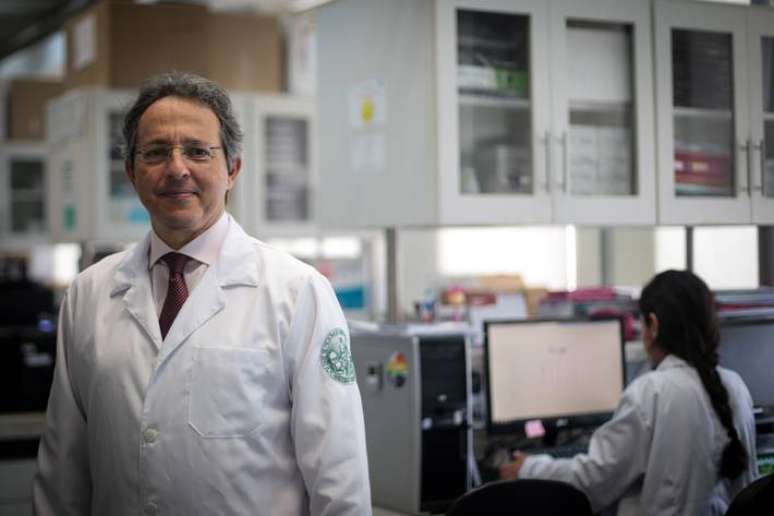With an effectiveness between 73% and 90%, in various age groups, it should arrive at the agency in the second half of 2024
In the 90s the infectious disease specialist Expert Georges Kallas was on the front line in the fight against the HIV virus. Between 2020 and 2021, at the worst time of Covid, his work at the USP HC Research Center led him to coordinate studies on this virus. And a year ago, in January 2023, Kallas became the clinical director of Butantan Institute – where he conducts research on phases 2 and 3 of the vaccine against dengue. In this conversation with Estadaoreveals: the institute “is very close to transmission Anvis the application for registration of the new vaccine”.
The information at least coincided with the publication The New England Journal of Medicine (from Massachusetts, USA), the results of the phase 3 trial of the immunizer. What was found? That Butantan’s dengue vaccine has an efficacy of 80.1% for children up to six years old and varies between 73% and 90% in other age groups. The current situation, with warning signs in Brasilia, Sao Paulo and Rio (where a state of emergency has been declared), shows “a surprising anticipation of the number of cases”. It doesn’t mean it’s “out of control”, warns the infectious disease specialist, “but it turns on a yellow light”.
And how can we protect the population from epidemics? The best strategy, Kallas underlines, “is to invest in science, which has a certain return”. He cites the challenges of scientific research in the country: “We must bring it into the national debate.” It is necessary, he adds, “to be better positioned for each new crisis. The question is not if it will happen, but when”. Below are key excerpts from the conversation.
You actively participated in the creation of the vaccine against Covid-19. How did this job go?
At USP I was the coordinator of the CoronaVac study and we were one of the centers participating in the Janssen study. Since Butantan had manufacturing and development capabilities, it partnered with CoronaVac, which was interested in developing studies in other countries. So the vaccine was developed in China and Brazil, but also in Chile and Turkey – and culminated in the approval of both CoronaVac and AstraZeneca, in that famous Anvisa meeting in January 2021.
Do you think Covid is still a concern?
Yes, but not with the same intensity as in 2021, with hospitals full and unable to treat all patients. Today the percentage of people suffering from the disease in a serious form is much lower. For two reasons: the first is the mass adherence of the population to the vaccine. Secondly, people who contracted Covid got greater protection.
How do you see the risk of new pandemics emerging?
Throughout history we have always had viruses that cause problems randomly. Ten years ago we had a very serious epidemic of the Ebola virus in Africa. The following year, the Zika virus appeared in Brazil, causing a very serious problem, microcephaly. In fact, very seriously, it reduced the birth rate among women by 5.6%. In 2017, yellow fever arrived near Sao Paulo; and at the end of 2019, SARS-Cov2 appeared, causing covid in China and then throughout the world. Looking at history, viruses make these leaps. We must be prepared for this.
And are we prepared?
Much better than in the past. We have the ability to detect, identify and characterize these new outbreaks and pandemics. But how can we say we are fully prepared? The fact is that we have to be fast. It makes no sense to develop a vaccine against an epidemic that moves at the speed of light, at a snail’s pace. And the best strategy to defend the population is to invest in science, which has a certain return. The more capable we are, the better we will be against new viruses. The question is not if they will arrive, but when.
In addition to flu and covid vaccines, what other vaccines does Butantan produce?
In addition to the vaccine against influenza, HPV, diphtheria, tetanus, whooping cough, hepatitis A, hepatitis B and rabies. All this production is ordered and delivered to the Ministry of Health and represents 95% of the resources that enter the institute, through the Butantan Foundation.
Vaccinations against dengue and chikungunya are at an advanced stage. What is missing?
For chikungunya we presented the dossier to Anvisa in December and if all goes well we intend to launch it in the second half of this year. In the case of dengue, I was the principal investigator of the phase 2 and phase 3 trials of the vaccine. We will shortly forward the registration request to Anvisa.
Does the institute have other products besides vaccines?
Yes, serums against snake, scorpion, spider and taturan venom, against rabies, diphtheria and tetanus viruses, always with technology fully developed at the institute. We will deliver to the Healthcare sector approximately 60 thousand units of protective serums against poisoning, toxins and the rabies virus.
What is the difference between a private and a public company in this segment?
We have a production capacity at competitive prices, even outside the national territory, because we are non-profit. A private company cannot work with lower margins, because it aims for profit. In our case we have to please the Ministry of Health, the State Government and the Ministry of Health: both Butantan and Fiocruz, by adhering to this principle, allow the SUS to have access to cheaper products.
What are the challenges Brazil faces to improve this performance as a whole?
First, the formation of a thinking critical mass in the country: scientists and researchers. Secondly, bring the importance of scientific and technological development into the national debate. And, finally, an economic scenario that facilitates investments in biotechnology and the biopharmaceutical industry. Because the added value that this industry brings to the country is phenomenal.
Source: Terra
Ben Stock is a lifestyle journalist and author at Gossipify. He writes about topics such as health, wellness, travel, food and home decor. He provides practical advice and inspiration to improve well-being, keeps readers up to date with latest lifestyle news and trends, known for his engaging writing style, in-depth analysis and unique perspectives.








